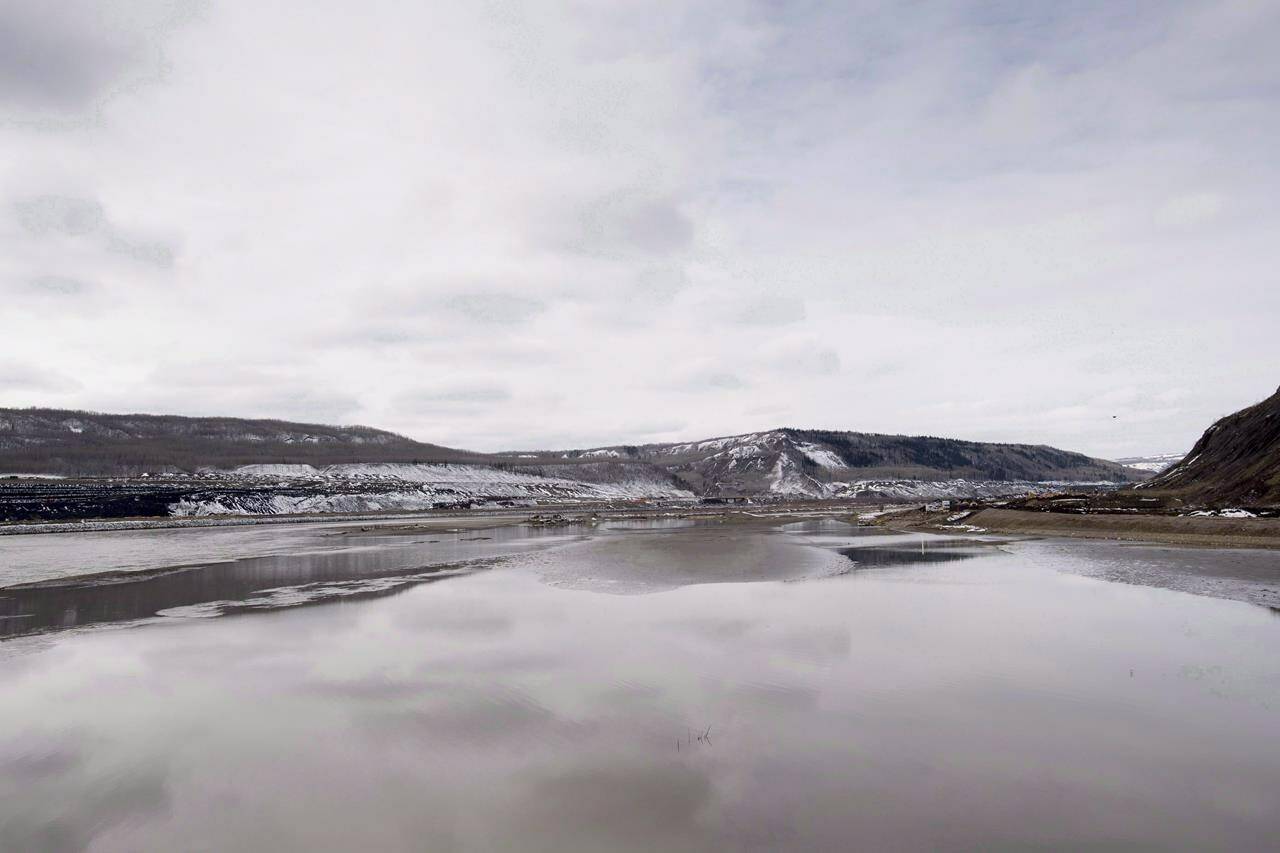An Indigenous leader says he’s heartbroken over an out-of-court agreement that will see construction continue on the massive Site C hydroelectric dam in northeast British Columbia.
Chief Roland Willson of the West Moberly First Nations said Monday his people did everything they could to stop the project, but realized the province and BC Hydro, the Crown corporation building the dam, were not going to stop.
A joint statement from the federal and provincial governments, the West Moberly and BC Hydro announced a partial agreement for the civil court lawsuit.
The nations said in the lawsuit the Site C dam — now expected to cost $16 billion — would destroy their territory and violate their treaty rights.
“We’ve actually come to the realization that they’re not stopping,” Willson said in an interview. “We had to figure out what our next move was. So, we’re focusing on restoring and reclaiming our land.”
The joint statement said BC Hydro and the province will give the nations financial benefits, contracting opportunities and the transfer of provincial Crown lands, while the West Moberly provides a release of claims against the Site C project.
It also said the agreement is a settlement with the federal government, but the claim that the existing dams on the Peace River infringe on West Moberly’s treaty rights will be paused to try to negotiate a settlement.
Willson said he could not discuss the financial details of the agreement but suggested the nations will receive an amount of Crown land equivalent to what will be lost to the dam.
The Site C will be the third hydroelectric dam on the Peace River, located downstream from the existing W.A.C. Bennett and Peace Canyon dams.
The dam’s reservoir will be about 83 kilometres long, which is up to three times the average width of the current river.
The project will flood about 5,550 hectares of land and will have a total surface area, including the current river area, of about 9,330 hectares, BC Hydro said on its website.
“I appreciate that it has been a difficult decision for West Moberly to resolve its claims against Site C,” said Hydro president Chris O’Riley in a statement. “These agreements provide us a foundation to move forward together in a manner that fosters a mutually beneficial relationship.”
The B.C. government recognizes the West Moberly nations have concerns about the impacts of Site C and the negotiations to reach a settlement were challenging, said Bruce Ralston, B.C.’s minister of energy, mines and low carbon innovation.
“The agreements provide a way forward, built on respectful dialogue, that recognizes and helps to mitigate the impacts of the Site C project on West Moberly First Nations, while ensuring benefits from the project will flow to the West Moberly community,” he said in a statement.
Willson said the land the West Moberly receives in the settlement will never replace the Peace River Valley being flooded by the project.
“Broken-hearted,” said Willson. “We’ve watched them rip up the valley for absolutely no reason. We’re not happy about how this happened, but we have to make the best of what we’ve got now.”
In August 2020, the Prophet River First Nation ended its legal battle against the B.C. government and Hydro over the Site C dam, which the nation originally claimed was a $1-billion treaty violation.
The nation alleged in a statement of claim that the dam development would destroy Indigenous territory and violate Aboriginal rights protected by Treaty 8.
Site C, which started construction in 2015, will provide enough energy to power the equivalent of 450,000 homes per year.
—Dirk Meissner, The Canadian Press
RELATED: Pilings, pandemic push up unexpected costs for B.C.’s Site C dam
RELATED: A timeline of events in British Columbia’s Site C dam project

